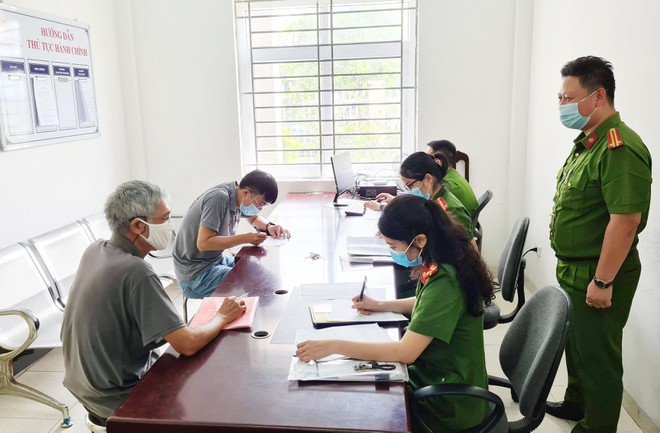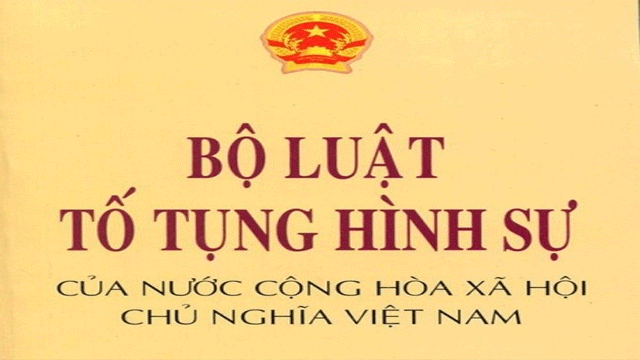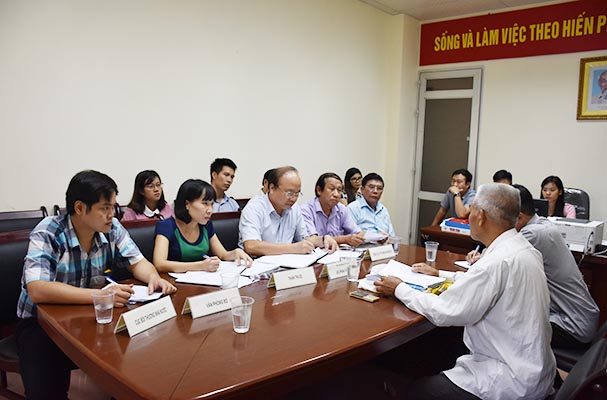What are the conditions for accepting complaints and denunciations in criminal proceedings in Vietnam? - Yen Trang (Long An)

Conditions for accepting complaints and denunciations in criminal proceedings in Vietnam (Internet image)
1. What is a complaint in criminal proceedings?
According to Clause 1, Article 3 of Joint Circular 02/2018/TTLT-VKSTC-TATC-BCA-BQP-BTC-BNN&PTNT, a complaint in criminal proceedings is a request by an agency, organization, or individual according to the procedures specified in Chapter XXXIII of the Criminal Procedure Code:
Agencies and persons competent to review procedural decisions, acts, and decisions on complaint settlement
when there are grounds to believe that such a decision or act is illegal or infringes upon their legitimate rights and interests.
2. What is a denunciation in criminal proceedings?
According to Clause 3, Article 3 of Joint Circular 02/2018/TTLT-VKSTC-TATC-BCA-BQP-BTC-BNN&PTNT, denunciation in criminal proceedings is an individual's performance according to the procedures specified in Chapter XXXIII of the Criminal Procedure Code:
Notify competent agencies or persons of law violations in criminal procedure activities by competent procedure-conducting persons in which they believe that such an act causes damage or threatens to cause damage to the interests of the state or the lawful rights and interests of agencies, organizations, or individuals.
3. Conditions for accepting complaints and denunciations in criminal proceedings in Vietnam
3.1. Conditions for accepting complaints in criminal proceedings in Vietnam
According to Article 5 of Joint Circular 02/2018/TTLT-VKSTC-TATC-BCA-BQP-BTC-BNN&PTNT, the agency or person competent to accept complaints can be settled for settlement when the following conditions are satisfied:
- The content of the complaint is a complaint in criminal proceedings; Complaints are made by complaint or direct complaint:
+ In case the complaint is made in writing, the date, month, and year of the complaint must be clearly stated; name and address of the complainant; name and address of the procedure-conducting agency or person; contents, reasons for the complaint, documents related to the complaint, and the complainant's request for settlement.
The complaint form must be signed or fingerprinted by the complainant; if more than one person makes a written complaint about the content, the petition must be signed by the complainant, and a representative must be appointed to present it at the request of the complaint settler.
+ In case the complainant comes to complain directly, the complaint receiver shall guide the complainant to write a written application or record the complaint contents and request the complainant to sign or point to confirm in writing.
If many people come to directly complain about the content, the competent agency shall organize a meeting and guide the complainant to appoint a representative to present the complaint and record the complaint in writing.
- Complaints about procedural decisions or acts within the statute of limitations as prescribed in Article 471 of the Criminal Procedure Code; in the case of a complaint against a first-time complaint settlement decision, the statute of limitations for making a complaint is 3 days from the date of receipt of the first-time complaint settlement decision.
If, due to force majeure or objective obstacles, the complainant is unable to exercise the right to complain within the prescribed statute of limitations, the complainant must have papers or documents proving or being certified by a competent authority.
- Complaints falling under the settlement competence of competent agencies or persons in accordance with the Criminal Procedure Code.
- The complainant must have legitimate rights and interests directly affected by the procedural decision or act that he/she complains about.
- The complainant must have full civil legal capacity as prescribed by law.
The complainant may exercise his or her right to complain either directly or through a defense counsel, defender of legitimate rights and interests, or a representative.
In case the complainant is a person under 18 years of age, a person who has lost his/her civil act capacity, a person with difficulties in perception and behavior control, or a person with limited civil act capacity who cannot file a complaint by himself/herself, the complaint is made through a legal representative, who must have proof.
- Complaints have not yet had a legally effective settlement decision, or the complainant's complaint withdrawal has not been filed.
3.2. Conditions for accepting denunciations in criminal proceedings in Vietnam
According to Article 9 of Joint Circular 02/2018/TTLT-VKSTC-TATC-BCA-BQP-BTC-BNN&PTNT, competent agencies and persons shall accept and settle denunciations when fully meeting the following conditions:
- The denunciation is a denunciation in criminal proceedings; the denunciation is made by application or presented directly to a competent authority:
+ In case the denunciation is made in written form, the date, month, and year of the denunciation must be clearly stated; name and address of the denouncer; the name, title, and position of the person competent to conduct the denounced procedure; denunciation, the reasons for the denunciation, documents related to the denunciation contents, and the denouncer's request for settlement.
The denunciation must be signed or fingerprinted by the denouncer; if more than one person makes a denunciation about the same content, the application must clearly state their full name, address, and method of contacting each denouncer; the name of the person representing the accuser.
+ In case the denouncer comes to denounce directly, the denunciation receiver shall guide the denouncer to write a written application or record the denunciation contents and request the denouncer to sign or point to confirm in writing.
If many people come to denounce the same content directly, the receiver shall instruct the denouncer to appoint a representative to write a denunciation or record the denunciation in writing and request the denouncer to sign or point to confirm the document.
- The denunciation has not been settled or has been settled, but there are new circumstances that may change the content of the settlement decision.
Where the complaint has been resolved according to law, but the complainant disagrees with the complaint settlement decision and continues to denounce the complaint settler, the denunciation shall only be accepted when the denouncer can provide information, documents, and evidence to prove the denunciation's contents.
- Denunciations fall within the competence of settlement according to the provisions of the Criminal Procedure Code.
Quoc Dat
- Key word:
- complaints
- denunciations
- in Vietnam
 Article table of contents
Article table of contents










.Medium.png)
.Medium.png)
.Medium.png)
.Medium.png)
